In the vast landscape of the internet, domain registration stands as a pivotal gateway, marking the initiation of a digital presence. It is the cornerstone upon which websites, businesses, and individuals establish their online identities, fostering connectivity, communication, and commerce in the digital realm. Understanding the intricacies of domain registration is paramount for anyone venturing into the online domain. In this comprehensive guide, we delve deep into the world of domain registration, exploring its significance, processes, best practices, and beyond.
Significance of Domain Registration
Domains serve as virtual real estate, providing an address through which internet users can access websites and online services. A domain name serves as a unique identifier, facilitating easy recognition and memorization for users navigating the web. It embodies the brand identity of businesses, reflecting their ethos, values, and offerings. Securing a domain is akin to staking claim to a piece of the digital landscape, ensuring exclusivity and control over online presence.
The Anatomy of a Domain
A domain name comprises several components, each serving a distinct purpose:
Top-Level Domain (TLD): This is the highest level in the domain hierarchy, often denoting the purpose or geographical location of a website (e.g., .com, .org, .net, .edu, .gov).
Second-Level Domain (SLD): The main part of the domain name, chosen by the registrant to represent their brand, organization, or entity.
Subdomain: An optional component that precedes the domain name, allowing further categorization or organization of web content (e.g., blog.example.com).
The Domain Registration Process
Choosing a Domain Name: Selecting a domain name is a critical decision, as it directly impacts brand identity, search engine optimization (SEO), and user engagement. It should be concise, memorable, and relevant to the entity it represents.
Checking Domain Availability: Before proceeding with registration, it’s essential to verify the availability of the desired domain name. Numerous domain registrars offer search tools to check the availability of specific domain names across various TLDs.
Selecting a Registrar: A domain registrar is a company accredited by the Internet Corporation for Assigned Names and Numbers (ICANN) to offer domain registration services. Factors to consider when choosing a registrar include pricing, customer support, renewal policies, and additional services offered.
Registration and Payment: Once a domain name is chosen and its availability confirmed, the registration process involves providing contact information, selecting the desired registration duration, and completing the payment transaction.
Domain Management: Registrants gain access to domain management tools provided by the registrar, allowing them to modify DNS settings, update contact information, and renew registration when necessary.
Best Practices for Domain Registration
Protect Brand Identity: Registering multiple TLDs and variations of the domain name (e.g., .com, .net, .org) helps safeguard brand identity and prevents competitors or malicious entities from capitalizing on brand confusion.
Keep Contact Information Updated: Maintaining accurate contact information is crucial for domain ownership verification and receiving important notifications regarding domain status, renewals, and security issues.
Enable Auto-Renewal: Enabling auto-renewal ensures uninterrupted domain ownership, preventing accidental expiration and potential loss of the domain name.
Implement Domain Privacy: Domain privacy services mask the registrant’s contact information from the public WHOIS database, reducing the risk of spam, phishing, and identity theft.
Monitor Domain Health: Regularly monitoring domain health, including DNS records, SSL certificates, and security vulnerabilities, helps mitigate risks and ensure optimal performance and security.
Legal and Ethical Considerations
Trademark Infringement: Registrants should avoid registering domain names that infringe on existing trademarks, as this may lead to legal repercussions and loss of the domain.
Cybersquatting: Intentionally registering domain names with the intent to sell them at a higher price or to profit from the goodwill of existing brands is unethical and may result in legal action.
Domain Disputes: Disputes over domain ownership, such as cases of cybersquatting or trademark infringement, are typically resolved through domain arbitration processes, such as the Uniform Domain-Name Dispute-Resolution Policy (UDRP).
Emerging Trends and Technologies
New gTLDs: The introduction of new generic top-level domains (gTLDs) has expanded the domain namespace, offering more options for creative and industry-specific domain names (e.g., .tech, .online, .store).
Blockchain-Based Domain Systems: Blockchain technology is being explored to develop decentralized domain registration systems, offering enhanced security, censorship resistance, and ownership control.
Internationalized Domain Names (IDNs): IDNs allow domain names to be registered using non-ASCII characters, catering to users from non-English speaking regions and promoting linguistic diversity on the internet.
Conclusion
Domain registration serves as the cornerstone of the internet, enabling individuals, businesses, and organizations to establish their online presence and connect with a global audience. By understanding the significance, processes, best practices, and legal considerations associated with domain registration, stakeholders can navigate the digital landscape effectively, ensuring a secure, memorable, and impactful online identity. As the internet continues to evolve, staying informed about emerging trends and technologies in domain registration remains crucial for maximizing opportunities and mitigating risks in the digital age.



